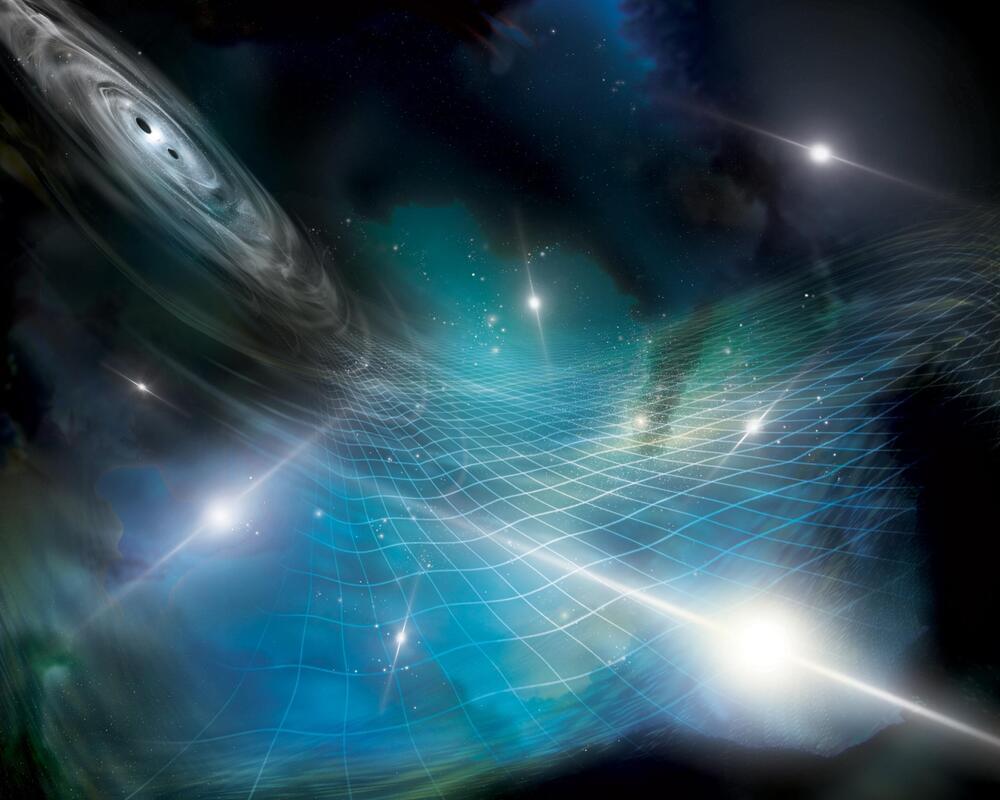The universe is humming with gravitational radiation—a very low-frequency rumble that rhythmically stretches and compresses spacetime and the matter embedded in it.
That is the conclusion of several groups of researchers from around the world who simultaneously published a slew of journal articles in June describing more than 15 years of observations of millisecond pulsars within our corner of the Milky Way galaxy. At least one group—the North American Nanohertz Observatory for Gravitational Waves (NANOGrav) collaboration—has found compelling evidence that the precise rhythms of these pulsars are affected by the stretching and squeezing of spacetime by these long-wavelength gravitational waves.
“This is key evidence for gravitational waves at very low frequencies,” says Vanderbilt University’s Stephen Taylor, who co-led the search and is the current chair of the collaboration. “After years of work, NANOGrav is opening an entirely new window on the gravitational-wave universe.”
